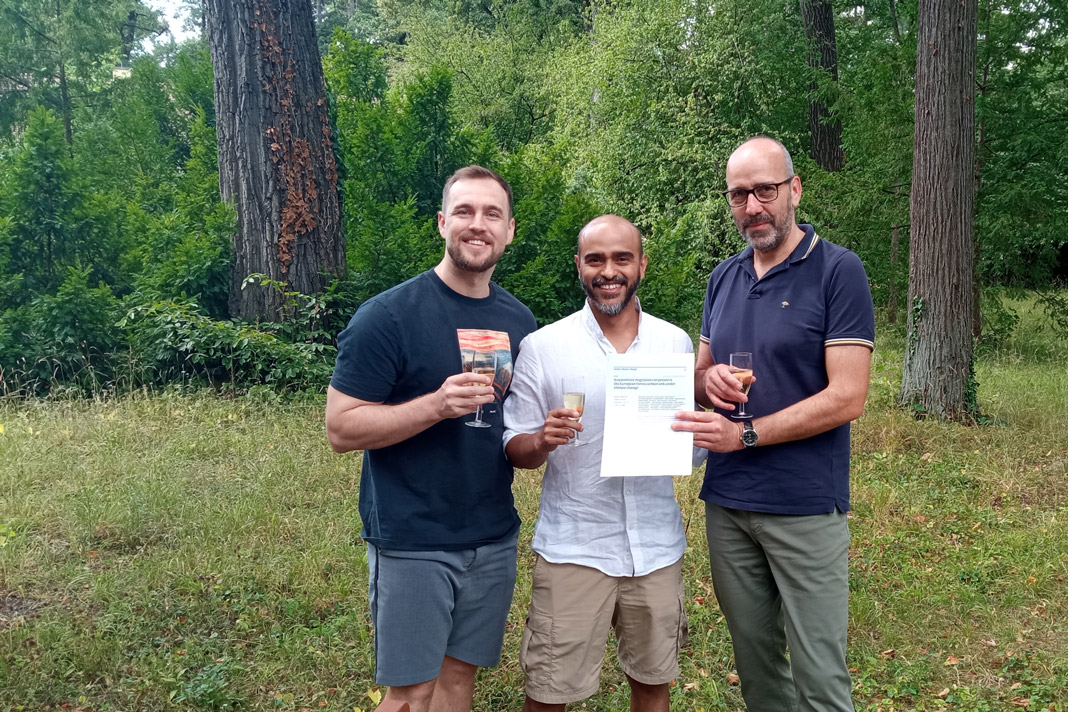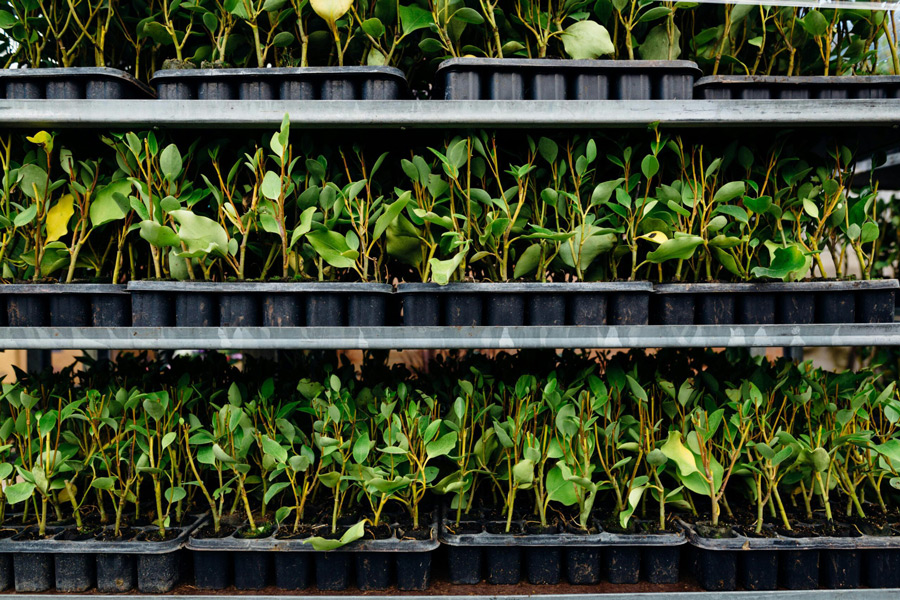Happy 25th Anniversary, EUFORGEN!
2019 marks a milestone for EUFORGEN as it signifies 25 years since its establishment in 1994 - a time to reflect on what has been achieved and to look forward to the future. 25 years have shown that EUFORGEN was able to strengthen capacities in member countries to build a strong network and to start implementing a coordinated pan-European strategy on the genetic conservation of forest trees.
Founded as a result of a resolution adopted by the 1st Ministerial Conference of the Forest Europe process, EUFORGEN aims to make the conservation and sustainable use of forest genetic resources an integral part of sustainable forest management. The resolution called for the establishment of a voluntary instrument for cooperation on conservation of genetic diversity of European forests and EUFORGEN became that instrument.
Countries need to exchange knowledge and experience to meet today’s challenges, which threaten forests and do not end at national borders. Climate change and forest disturbances such as fires, droughts and tree diseases put the survival of forests at risk. Ultimately, that impacts society, which relies on the many different services that forest provide. Genetic diversity within the forests is part of the solution to maintain healthy forests.
EUFORGEN offers a place for constant dialogue among scientists, policy makers and practitioners to develop strategies and define priorities. It builds capacity in all member countries and beyond (as clearly emerged in 2017 when the Programme was evaluated).
By developing and linking ongoing research projects with the broader Forest Genetic Resources (FGR) community and maintaining permanent communication channels with European countries and funding agencies, EUFORGEN plays a key role in the FGR community.
A milestone in EUFORGEN’s development was the pan-European strategy for genetic conservation of forest trees, published in 2015. Based on that, many countries have already implemented the strategy within their borders. The strategy allows countries to plan and implement their forest genetic resources conservation work in a coordinated way, optimizing resources and aiming to maintain the evolutionary potential of the forest tree species. This is a clear example of how EUFORGEN is able to make a difference in the conservation of FGR.
Based on the collective knowledge of its network, EUFORGEN produced a large number of relevant outputs, such as technical guidelines of tree species, distribution maps of European forest tree species, the EUFGIS information systems on genetic conservation units and other technical and expert reports.

In 2018, the EUFORGEN Secretariat moved under the umbrella of the European Forest Institute (EFI). The head of EFI’s Resilience Programme, Georg Winkel, commented: “For us at EFI, we have already learned a lot from the collaboration with EUFORGEN, which is a fascinating knowledge network on forest genetic resources. EUFORGEN’s ambition to transport scientific knowledge and evidence into policy making is a shared desire in the future that entails big challenges for forest ecosystems and their management.”
Michele Bozzano, the EUFORGEN Coordinator, is enthusiastic about the way EUFORGEN operates. “Every time that the representatives from each member country meet,” he said, “we have in the same room the knowledge, the capacity and the perspectives that no country alone can have. No other initiative has this character. I get emotional thinking about our unique community. In discussions, we each bring our national diversity as a richness, as a contribution. It is a bond, not a separation. We know that the best way to ensure the conservation of forest genetic resources is through a pan-European collaboration. We share a common responsibility, we develop common strategies, and we work for common success.”

Outside the FGR community, Bozzano points out, the great strength of EUFORGEN is the way it is grounded in a firm, government-driven consensus. ”National governments nominate their National Coordinators through their ministries responsible for forests. That is why stakeholders know that we are be able to present the position, the needs and the priorities of the whole of Europe.”
The National Coordinator from Finland, Mari Rusanen, said: “Finland was committed to the pan-European cooperation from the very beginning. It just makes so much sense to cooperate when the target species don’t recognize borders anyway. My first EUFORGEN experience was the Noble hardwoods network meeting in 1996. At home I was struggling alone with different options of ex situ [conservation] for our rare species and it was very difficult to find advice even from written sources. It was just wonderful to meet people who shared the same problems and for the first time get peer support.”
For the coming 25 years, EUFORGEN intends to continue to operate as a vehicle to find the best ways to implement forest genetic resources conservation and to link forest genetic researchers and best practices with all stakeholders who care for sustainable forest management.








